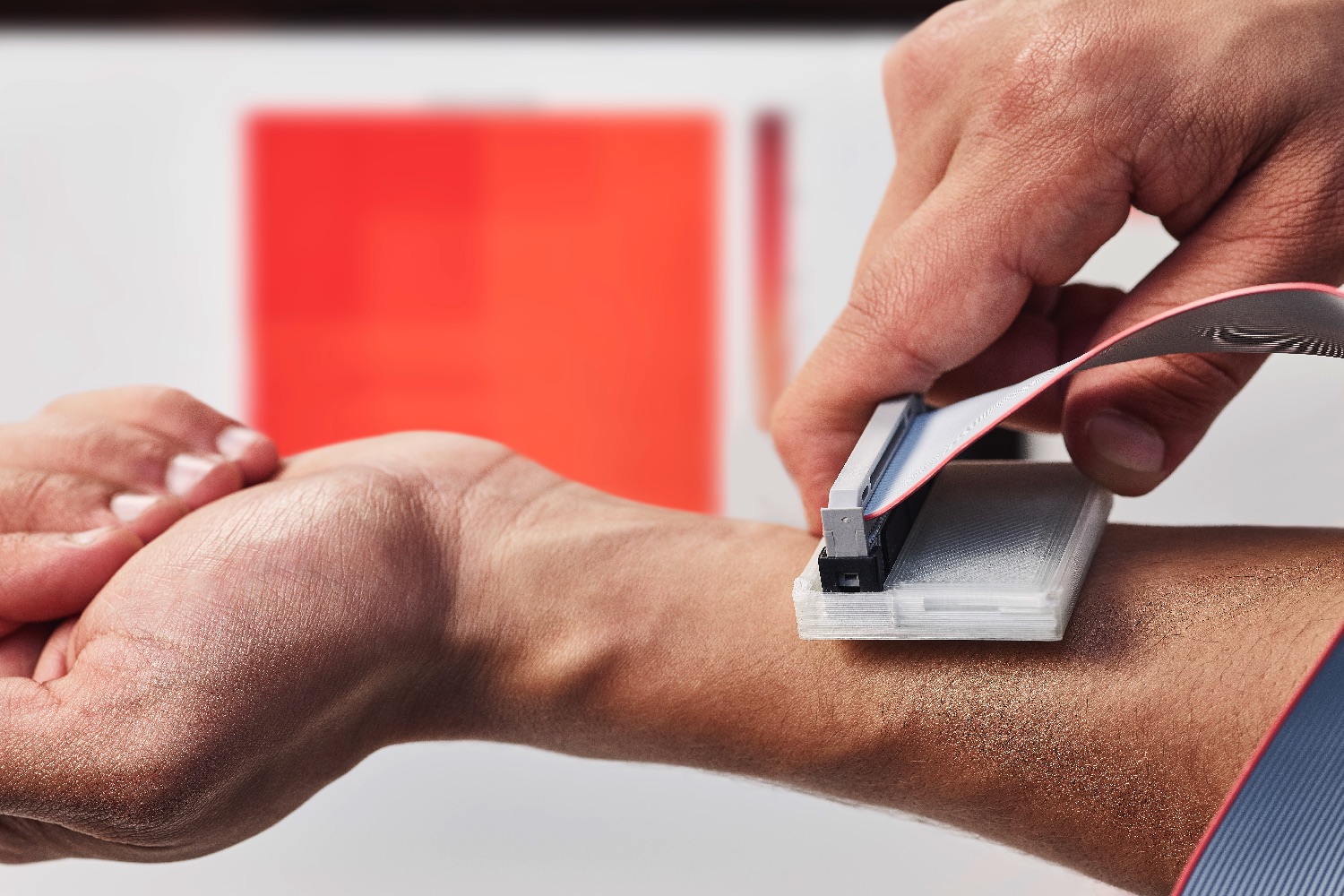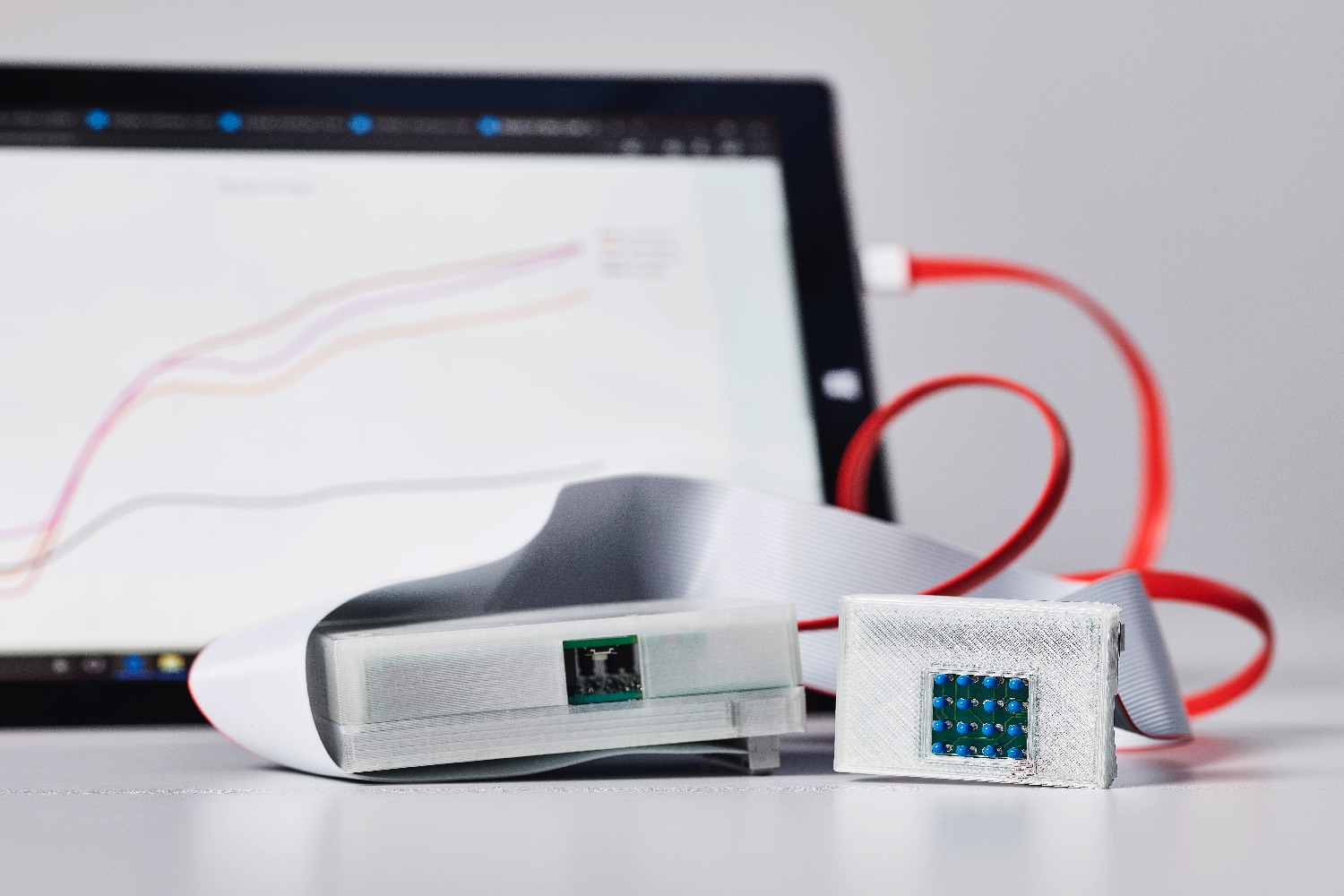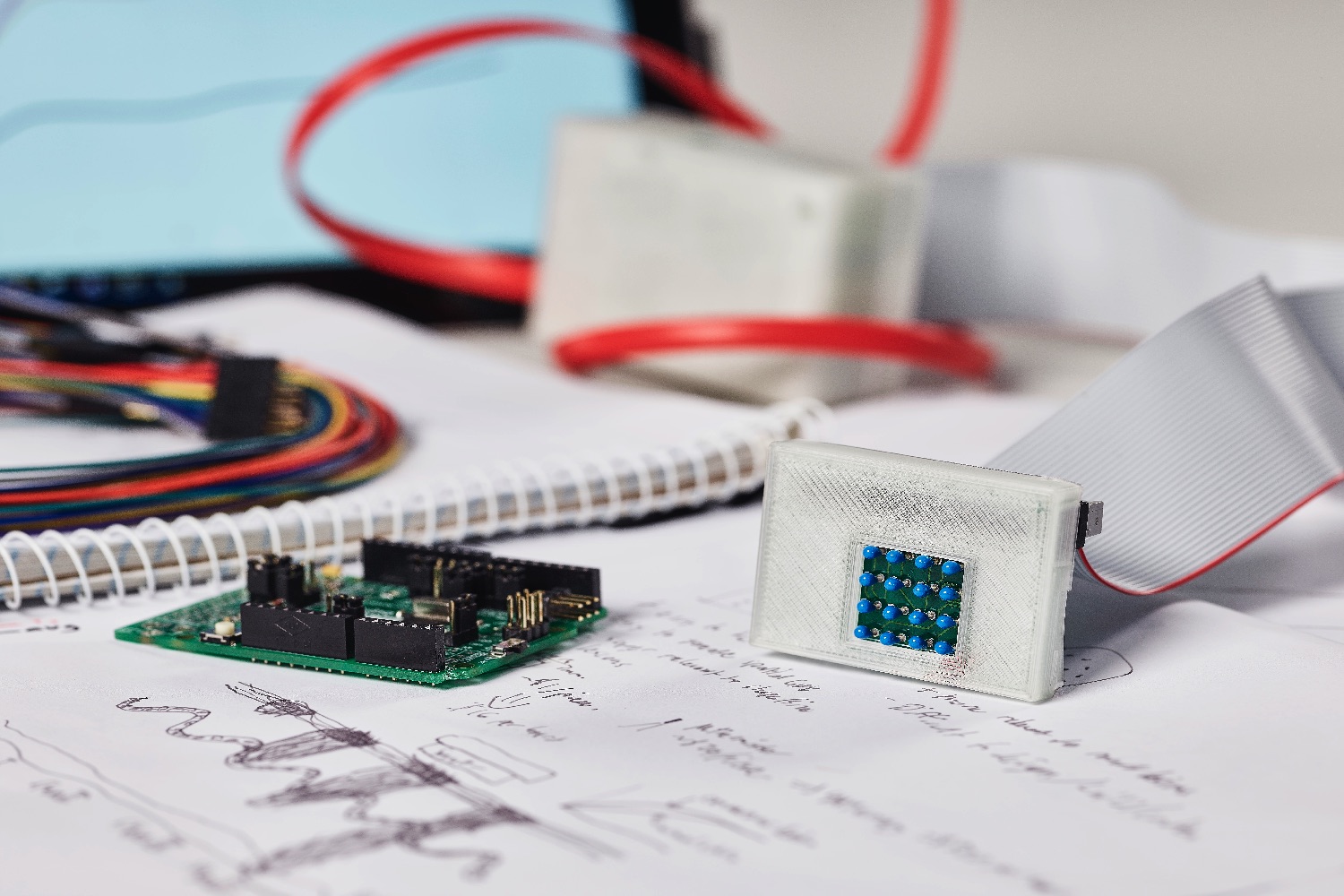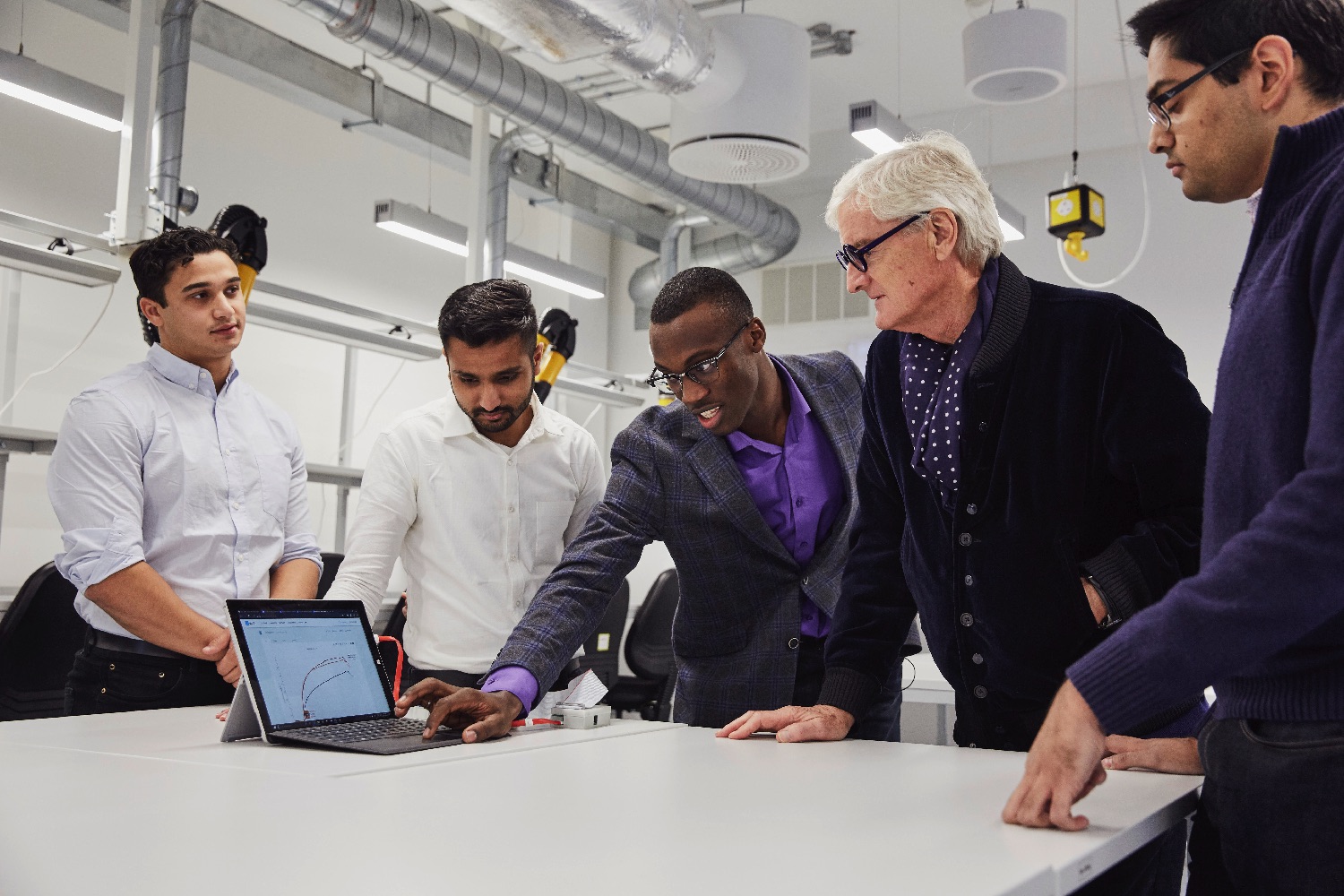There may be a solution on the horizon, however. Engineering undergrads at McMaster University in Ontario, Canada, have developed a noninvasive diagnostic tool which uses thermistors to monitor the heat emissions of cancerous cells in real time. This can help reveal whether a suspect lesion or mole is dangerous long before it presents visually. And they’ve been rewarded with the top prize in the international James Dyson Award (JDA) for their efforts.
“The sKan is a low cost, handheld device for diagnosing melanoma,” team member Rotimi Fadiya told Digital Trends. “In a sense, it is a spatial thermometer. We know that when our skin is cooled, it takes some time for it to recover back to normal temperature. Research shows that cancerous tissue recovers more rapidly than healthy tissue. Using this insight, we created a device that can accurately track the thermal recovery of a lesion and the surrounding skin, to cost effectively and quickly identify melanoma.”
As part of the prize, the team will receive close to $40,000 to develop its idea. They hope to create a finished product that can be manufactured for less than $1,000, thereby making it an affordable diagnostic system for doctors. Their hope is that one day the sKan will be used by physicians to provide a second opinion, and by the average individual in the comfort of his or her own home to promote early detection.
“The next step is to undergo preclinical testing, hopefully using the sKan on patients with melanoma to detect any areas that still need improvement,” Fadiya continued. “We also have several technical improvements to make on the device that are only made possible because of the funding received from the James Dyson Award. Our future plans are to develop the sKan to a level of performance where it can receive the necessary regulatory approval, such as (U.S. Food and Drug Administration) or Health Canada. From there, we hope that it will become a tool family physicians use, alongside their visual inspection, to better detect melanoma.”
While this is far from the only innovative approach to catching melanomas that we’ve covered, it’s certainly among the most exciting — and potentially lifesaving.







